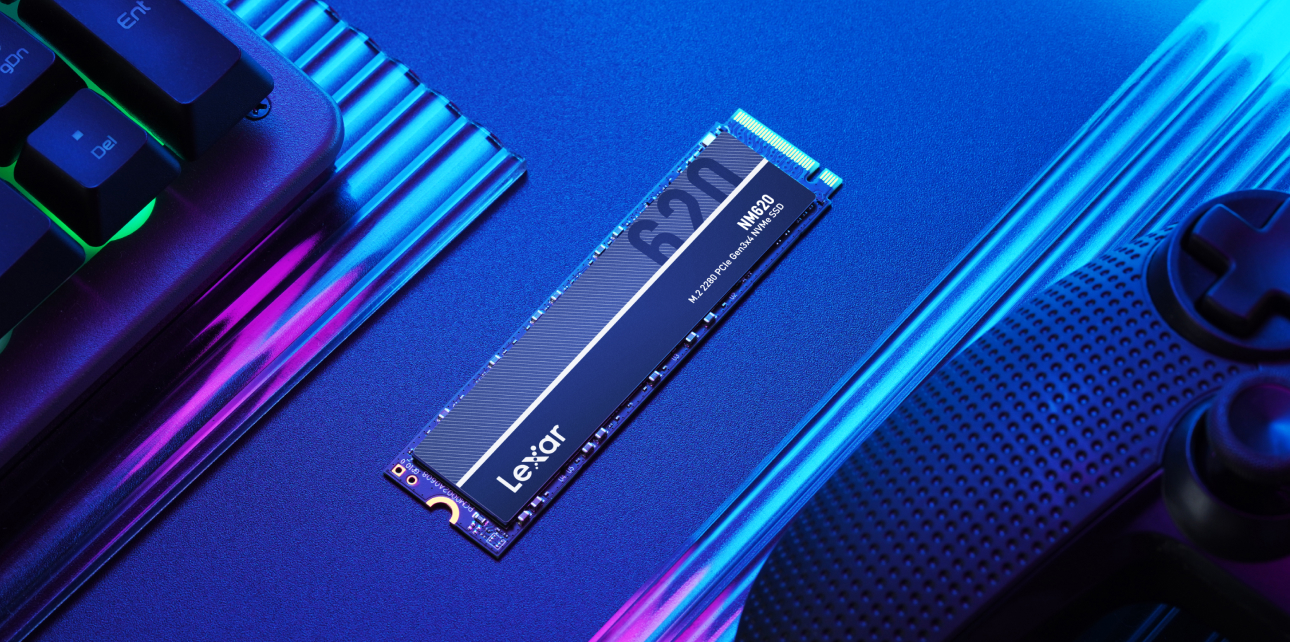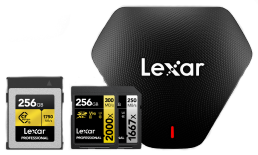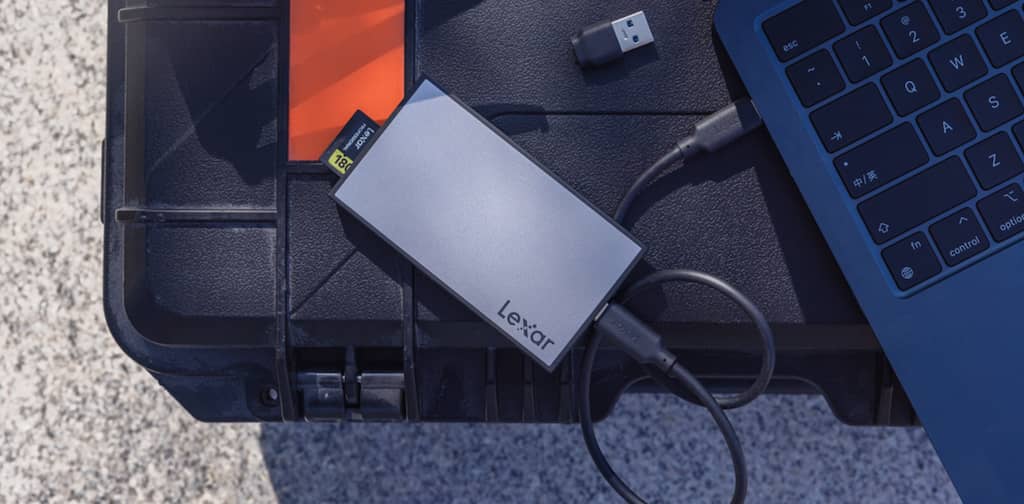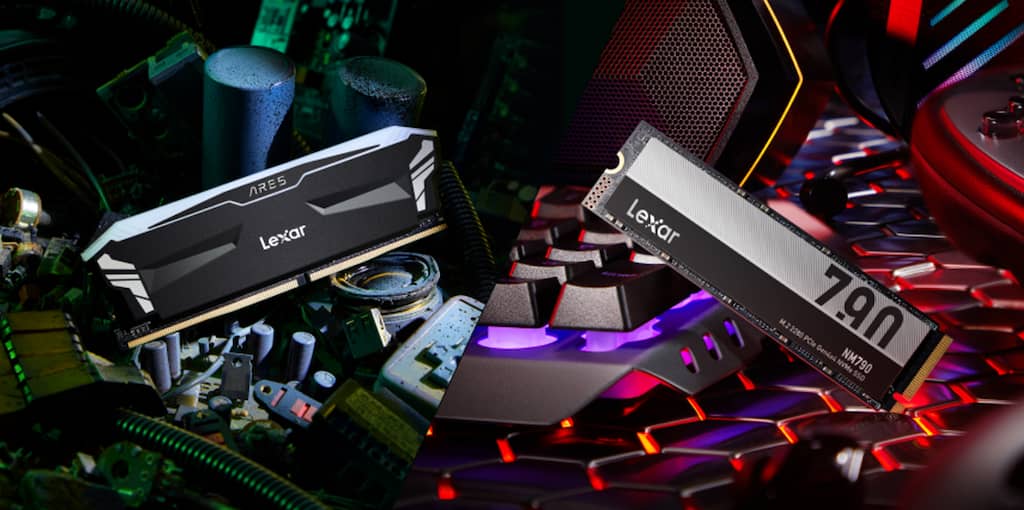
When it comes to upgrading your computer’s storage, a 1TB SSD strikes the perfect balance between cost and performance. Offering ample space for files, games, and applications, this storage option delivers the speed and reliability that modern users demand.
In today’s market, SSDs come in a wide range of capacities-from compact options perfect for everyday use to high-performance solutions designed for demanding workloads. Lexar’s SSD lineup features a variety of sizes and performance levels, but 1TB SSDs in particular stand out for their versatility. They provide enough space for most users while delivering the responsiveness and durability that gamers, content creators, and professionals need.
But is it worth the investment?
Below, we break down the ins and outs of 1TB SSDs, including their advantages and disadvantages, to help you make the right decision for your storage needs. Let’s get started.
Key Takeaways:
- What is a 1TB SSD? A Storage Sweet Spot: Combines high capacity and exceptional performance, making it ideal for gamers, content creators, and professionals.
- 1TB SSD’s Superior Speed: SSDs deliver faster boot times, file transfers, and multitasking capabilities compared to traditional HDDs.
- Reliability and Durability: Built with solid-state technology, SSDs are resistant to physical damage and wear, ensuring a longer lifespan.
- Energy Efficiency: Consumes less power, extending battery life in laptops and contributing to lower energy costs.
- Higher Initial Cost: 1TB SSDs are pricier than HDDs, but their performance and longevity often justify the investment.
- How to Maximize SSD Benefits: Use best practices like proper initialization, firmware updates, and file organization to optimize performance and extend lifespan.
- Is it Worth It? The balance of speed, capacity, and durability makes a 1TB SSD a smart long-term choice for users who value performance.


What is a 1TB SSD?
If you aren’t familiar, a 1TB SSD (Solid-State Drive) is a high-capacity storage device that uses flash memory to store data. What makes SSDs unique is that they have no moving parts, and this results in faster data access and improved reliability.
With 1 terabyte (1,000 gigabytes) of storage, these drives provide ample space for storing operating systems, applications, games, and large media files like videos and photos.
For most users, a 1TB SSD offers top-notch performance and reliability. It’s large enough to meet the needs of gamers, content creators, and professionals while offering significantly faster speeds than HDDs.
However, finding the right balance between cost and performance is key.
While SSDs are more expensive per gigabyte compared to HDDs, their speed, durability, and energy efficiency often justify the price for those who prioritize a smoother computing experience.


The Various Advantages of a 1TB SSD
As we mentioned, SSDs offer incredible benefits for gamers chasing professional gameplay performance. To give you even more insight, let’s dive deeper into the specific advantages of upgrading to a 1TB SSD.
High Capacity for Various Needs
With 1 terabyte of space, a 1TB SSD provides enough room to store a vast array of files, from game libraries to high-resolution videos and professional-grade software. For users working with 4K content, pairing your SSD with the best SD cards for 4K video ensures you’ll have ample space and seamless workflows. This makes a 1TB SSD the perfect option for those requiring a single drive that can handle diverse storage needs without compromising speed or accessibility.
Performance Benefits
When it comes to speed, 1TB SSDs excel. They can read and write data much faster than traditional HDDs, drastically reducing boot times, application load times, and file transfers. For demanding tasks such as editing high-resolution videos, working with large datasets, or playing AAA games, the performance gains are particularly noticeable.
The faster speeds don’t just boost productivity-they make everyday computing smoother and more responsive. With a 1TB SSD, users can fully optimize their system’s potential without delays. Additionally, being able to work directly from the SSD without the need for external transfers streamlines workflows and saves valuable time.
If you’re curious about how SSDs compare to traditional storage, check out our guide on SSD vs HDD for a clearer understanding of the advantages.
Durability and Longevity
Because SSDs use solid-state technology with no mechanical components, they are far more resistant to physical damage from shocks or drops. This durability significantly reduces the risk of hardware failure and extends the lifespan of the drive.
Moreover, many high-quality SSDs, including those with built-in ECC RAM, can handle large volumes of data without degradation, making them ideal for professionals who require reliability and protection for critical data. Whether in laptops, portable drives, or desktop systems, a 1TB SSD’s resilience offers peace of mind.
Energy Efficiency
1TB SSDs are inherently more energy-efficient than traditional HDDs. Without spinning disks or moving parts, they consume less power, which not only reduces energy consumption in desktops but also extends battery life in laptops.
For users who work on the go, this efficiency translates to longer uninterrupted work sessions and a reduced need for charging. Plus, lower energy usage contributes to a smaller environmental footprint, making a 1TB SSD an eco-conscious performance upgrade.


Who Should Choose a 1TB SSD?
A drive of this capacity offers a unique balance between speed, space, and value, making it an attractive choice for many types of users. But who can benefit most from this storage solution?
Gamers
For gaming enthusiasts, a 1TB drive provides enough room for expansive game libraries and enables fast load times. Whether you enjoy competitive online matches or immersive open-world adventures, it helps ensure smooth, uninterrupted play.
Content Creators
Photographers, videographers, and designers will appreciate the speed and reliability of solid-state storage. With ample space for high-resolution images and videos, and rapid read/write performance, it streamlines editing workflows. Pair it with tools like the best SD cards for 4K video to enhance your creative process.
Professionals
If you manage large files, run multiple programs simultaneously, or work with virtual machines, this type of storage boosts productivity. Its fast data access and durability make it ideal for developers, engineers, and analysts alike.
Everyday Users
For day-to-day use, this drive ensures quick system startups, responsive browsing, and reliable file transfers. Its energy efficiency and durability also make it a solid choice for laptops and desktops.
The Few Disadvantages of 1TB SSD
As fantastic as 1TB SSDs are, they do come with a few downsides that are important to consider. Let’s take a closer look at the high initial cost and limited upgrade options that come with 1TB SSDs.
Higher Initial Cost
Easily, one of the most significant downsides of a 1TB SSD is its price.
Compared to traditional HDDs, SSDs come with a higher cost per gigabyte. This makes them less accessible for budget-conscious users or those who prioritize maximizing storage capacity over performance.
For example, a 1TB HDD can often be purchased for a fraction of the cost of a 1TB SSD, making it a more attractive option for those who require mass storage without the need for speed.
Limited Upgrade Options for More Advanced Users
Along with the price, 1TB SSD may not be enough for advanced users with extensive storage needs.
Gamers with large libraries, content creators working with 4K or 8K video files, or professionals managing massive datasets may find that 1TB fills up quickly.
For these users, multi-terabyte SSDs or hybrid systems that combine SSDs for performance with HDDs for storage may be more suitable — but at an even higher cost.
Limited Write Endurance
While 1TB SSDs are durable, they have a limited number of write cycles, meaning their performance can degrade over time with excessive data writing and rewriting. This is particularly important for users dealing with intensive workloads, such as constant video editing or large-scale data management. While modern SSDs handle typical consumer needs well, heavy users should consider higher-endurance SSD models or plan for eventual replacements.


Maximizing the Benefits of a 1TB SSD
Now, before we discuss whether or not a 1TB SSD is right for you, let’s first talk about all the ways you can maximize the benefits of this kind of advanced storage solution. Proper optimization can extend the lifespan, improve performance, and make the most of your investment.
- To extend the life of your 1TB SSD, avoid unnecessary rewrites or deleting large amounts of data frequently, as this can wear out the flash memory cells over time. Additionally, ensure your SSD’s firmware is up to date, as manufacturers often release updates that improve performance and address bugs. Tools like disk optimization software can help monitor your SSD’s health and performance over time.
- While 1TB provides substantial storage, managing files effectively can make the drive last longer and operate more efficiently. Consider organizing your files into categories, archiving unused data to external storage, and using cloud storage services for backups. Leaving 10-15% of your SSD’s capacity free helps maintain its speed and prevents performance degradation.
- When setting up your SSD for the first time, proper initialization and formatting are key to ensuring compatibility with your operating system. This process prepares the SSD for file storage and helps avoid errors down the line.
By following these simple tips, you’ll ensure your 1TB SSD stays fast, reliable, and efficient for years to come. For additional guidance, visit the Lexar Support FAQs.
So … Is a 1TB SSD Worth It?
Now, it’s time to answer the million-dollar question: is a 1TB SSD worth it?
When you’re trying to decide if a 1TB SSD is the right investment for your needs, take the time to consider how it aligns with your specific use case.
While it may come with a higher price tag compared to traditional HDDs, the value of a 1TB SSD often lies in its ability to boost performance, capacity, and longevity all in one.
Ultimately, we believe a 1TB SSD is worth it for users who need a balance of capacity and performance while valuing the convenience and reliability it provides.
For many, the benefits of speed, efficiency, and durability far outweigh the higher cost, making a 1TB SSD a smart long-term investment.


Turning to Lexar for High-Quality 1TB SSD Options
At the end of the day, there’s no denying that a 1TB SSD is a versatile choice for gamers, content creators, and everyday users alike. While its higher upfront cost may seem daunting, the performance boost and durability it provides often make it a worthwhile investment.
If you’re ready to upgrade your storage capacity in a whole new way, it’s time to head over to Lexar and explore our wide range of high-quality SSD options. If you want more guidance to choose the right SSD for your needs check out our other SSD-related blogs.
Frequently Asked Questions
What is a 1TB solid-state drive?
It’s a storage device that uses flash memory to provide fast data access, durability, and energy efficiency. With a capacity of one terabyte, it can hold large amounts of files, games, and applications.
Is this amount of storage enough for gaming and content creation?
For most gamers and content creators, a drive with this capacity offers an excellent balance between space and performance. It’s ideal for storing large game libraries, high-resolution videos, and professional-grade software while maintaining fast load times.
How long will it last?
The lifespan depends on how it’s used and maintained. With regular use and proper care (like avoiding excessive data writes and keeping firmware updated), these drives can last several years, often outlasting traditional hard drives.
Can it work with older laptops or desktops?
Yes, in most cases. As long as your system supports the connection type (such as SATA or NVMe) and the drive is initialized and formatted correctly, it can replace or complement existing storage solutions.
How does it compare to a hard drive?
Compared to a traditional HDD, this type of drive offers significantly faster read and write speeds, better durability (since it has no moving parts), lower power consumption, and quieter operation.




